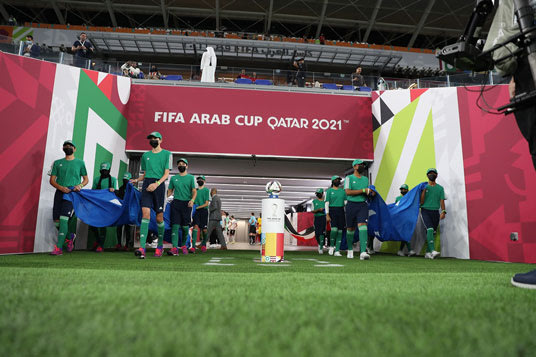From Dream to Reality
“Tomorrow was made at Qatar Foundation.”
A mission spanning more than 25 years was encapsulated in a single sentence by Her Highness Sheikha Moza bint Nasser, Chairperson of Qatar Foundation, as the people of Qatar were given a unique insight into the very first days of an organization the like of which the world had never seen before.
The Untold Stories of Qatar Foundation – a special panel discussion in QF’s former headquarters, broadcast on national television – saw Her Highness, who envisioned and founded QF in 1995 with the support of His Highness Sheikh Hamad bin Khalifa Al Thani, the Father Amir, give an unprecedented recollection into why it was established, and how belief removed the challenges that stood in the way of a dream.
Her Highness was joined by some of the central figures in QF’s establishment for the discussion, and explained the purpose of QF by saying: “We thought of it as an Arab-Islamic renaissance project, based in Qatar, to promote sustainable development in the Arab world by creating positive change from an academic, research, and societal perspective.”
“Tomorrow was made at Qatar Foundation.”
A mission spanning more than 25 years was encapsulated in a single sentence by Her Highness Sheikha Moza bint Nasser, Chairperson of Qatar Foundation, as the people of Qatar were given a unique insight into the very first days of an organization the like of which the world had never seen before.
The Untold Stories of Qatar Foundation – a special panel discussion in QF’s former headquarters, broadcast on national television – saw Her Highness, who envisioned and founded QF in 1995 with the support of His Highness Sheikh Hamad bin Khalifa Al Thani, the Father Amir, give an unprecedented recollection into why it was established, and how belief removed the challenges that stood in the way of a dream.
Her Highness was joined by some of the central figures in QF’s establishment for the discussion, and explained the purpose of QF by saying: “We thought of it as an Arab-Islamic renaissance project, based in Qatar, to promote sustainable development in the Arab world by creating positive change from an academic, research, and societal perspective.”
The story of how QF came into being is as unique as the organization itself. In October, that story was told in greater detail than ever before – through the eyes and voices of those who wrote it.
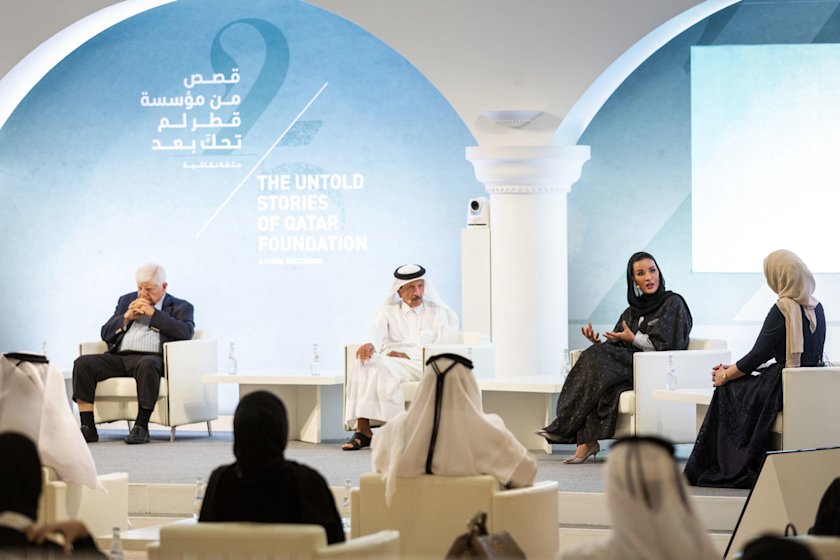
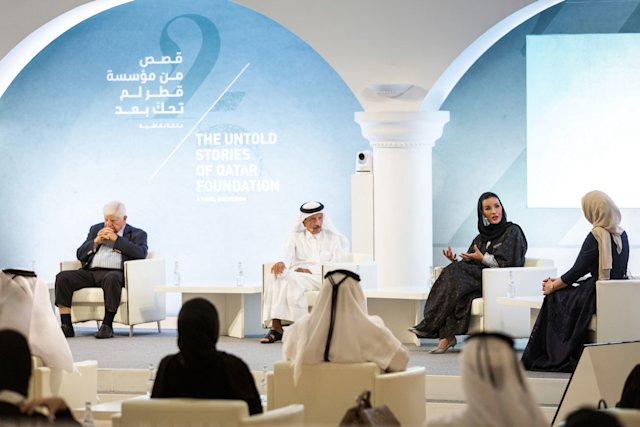
Driven by Belief
During The Untold Stories of Qatar Foundation, Her Highness spoke of how Qatar Academy Doha – QF’s first school – was born from her concerns about her children’s education, and the need for “radical change” in Qatar’s education system; as well as why QF chose partnering with international partner universities over establishing a single university.
“One of the challenges we faced during our negotiations with international universities was their questions about the academic level of our students,” she said. “But our belief in human capabilities in Qatar and the Arab region was solid.
“We knew that if these young people were given the right educational environment and the right opportunities, the world would witness their achievements. And that is what we see today.”
And while another challenge was, according to Her Highness, “building a culture of scientific research” in Qatar, it was overcome because: “We believe that innovation is the basis of the philosophy of Qatar Foundation.
“We wanted Qatar Foundation to be an incubator for scientists, researchers, and innovators across the Arab world and worldwide, because we recognize that scientific research continues as long as human life continues.”
During The Untold Stories of Qatar Foundation, Her Highness spoke of how Qatar Academy Doha – QF’s first school – was born from her concerns about her children’s education, and the need for “radical change” in Qatar’s education system; as well as why QF chose partnering with international partner universities over establishing a single university.
“One of the challenges we faced during our negotiations with international universities was their questions about the academic level of our students,” she said. “But our belief in human capabilities in Qatar and the Arab region was solid.
“We knew that if these young people were given the right educational environment and the right opportunities, the world would witness their achievements. And that is what we see today.”
And while another challenge was, according to Her Highness, “building a culture of scientific research” in Qatar, it was overcome because: “We believe that innovation is the basis of the philosophy of Qatar Foundation.
“We wanted Qatar Foundation to be an incubator for scientists, researchers, and innovators across the Arab world and worldwide, because we recognize that scientific research continues as long as human life continues.”
We knew that if these young people were given the right educational environment and the right opportunities, the world would witness their achievements
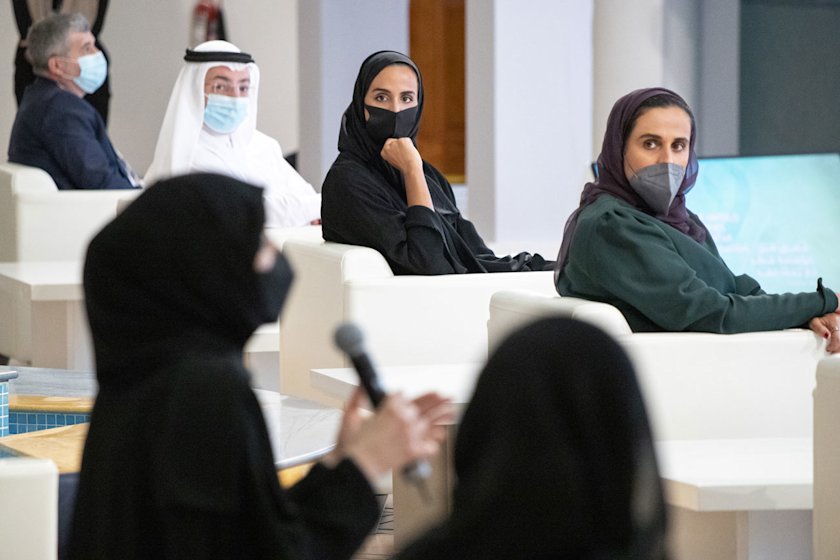
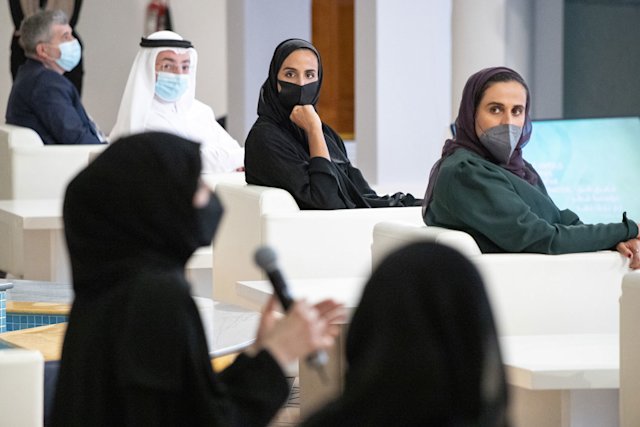
A Decade of Producing Leaders
One of the many milestones along QF’s path was the establishment in 2011 of its own university: Hamad Bin Khalifa University (HBKU).
And in October, HBKU’s ‘Decade of Excellence’ 10th anniversary celebration reflected on how the innovation-focused university has produced – and continues to produce - new thinkers, leaders, and impact-makers who help to drive Qatar’s development, while strengthening the nation’s research capacity.
Speaking at the event – attended by His Highness the Father Amir – Her Highness Sheikha Moza bint Nasser said: “We aimed to promote a culture of scientific research, to ensure that HBKU can become a national platform for research and for finding effective solutions to environmental, societal, economic, and security challenges.
“Now, HBKU also bears the responsibility of localizing global scientific research, and building on it and adapting it as befits Qatari and Muslim society.”
The celebration also saw the launch of ‘HBKU Dialogues’, a new initiative designed to encourage the open exchange of ideas on nationally and globally relevant topics, with the inaugural edition focusing on the impact of research on sustainable development and a knowledge-based economy.
One of the many milestones along QF’s path was the establishment in 2011 of its own university: Hamad Bin Khalifa University (HBKU).
And in October, HBKU’s ‘Decade of Excellence’ 10th anniversary celebration reflected on how the innovation-focused university has produced – and continues to produce - new thinkers, leaders, and impact-makers who help to drive Qatar’s development, while strengthening the nation’s research capacity.
Speaking at the event – attended by His Highness the Father Amir – Her Highness Sheikha Moza bint Nasser said: “We aimed to promote a culture of scientific research, to ensure that HBKU can become a national platform for research and for finding effective solutions to environmental, societal, economic, and security challenges.
“Now, HBKU also bears the responsibility of localizing global scientific research, and building on it and adapting it as befits Qatari and Muslim society.”
The celebration also saw the launch of ‘HBKU Dialogues’, a new initiative designed to encourage the open exchange of ideas on nationally and globally relevant topics, with the inaugural edition focusing on the impact of research on sustainable development and a knowledge-based economy.
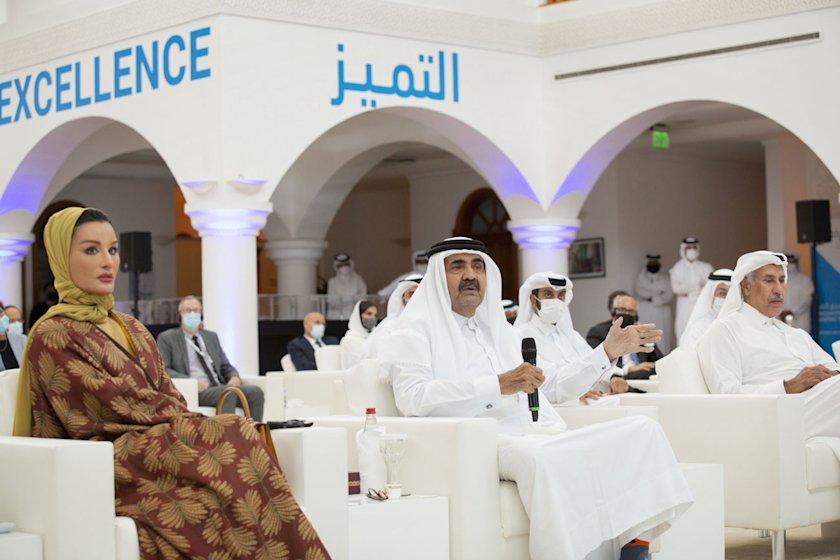
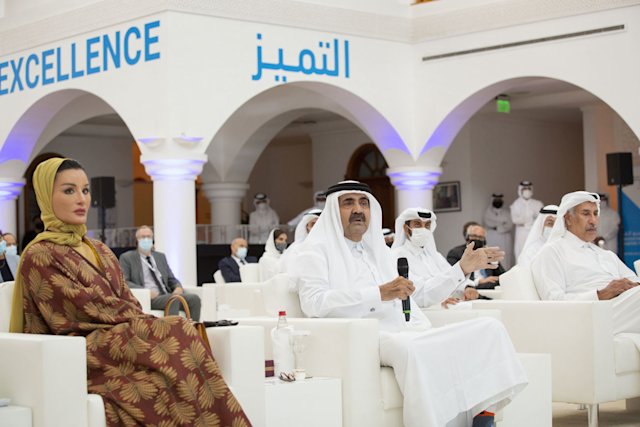
Since its establishment, 1,442 students have graduated from HBKU
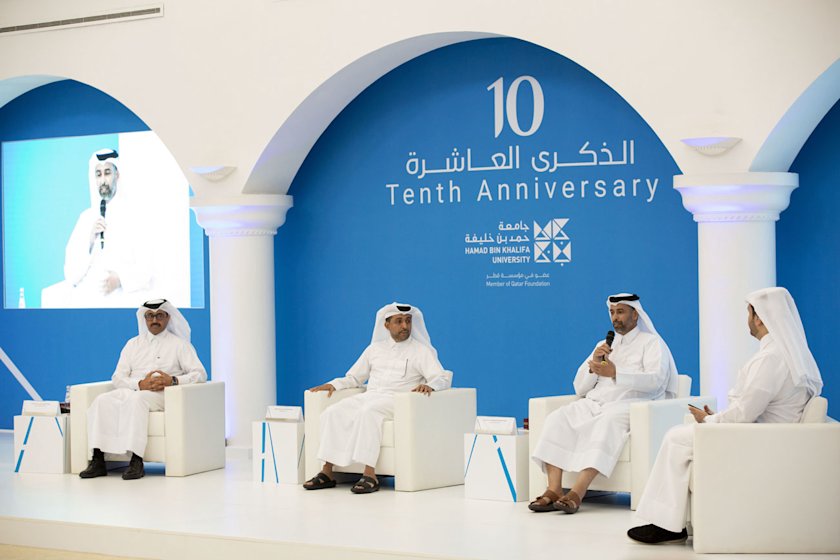
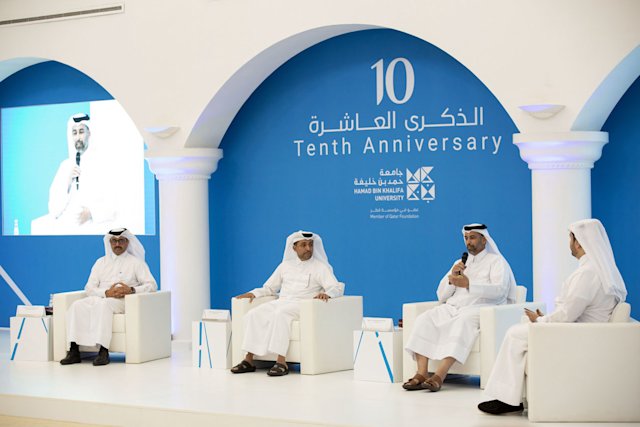
Changing Lives Through Their Values
Through their projects and their actions, they embody the morals and values that underpin a strong and compassionate society – and in October, young change-makers who set an example to everyone around them were celebrated at QF’s annual Akhlaquna Day.
The ceremony saw Her Highness Sheikha Moza bint Nasser award the latest winners of the Akhlaquna Award and Akhlaquna Junior Award, which respectively recognize young people aged 15-24 and school students aged 7-14 who inspire and improve others through their behaviors, ethics, mindsets, and devotion to creating positive social impact.
An initiative that brings together education and agriculture, Grass Banking – a project created by young Qataris Al-Anood Al-Kubaisi, Lolwa Al-Musafri, and Fatima Al-Naimi – was named the winner of Cycle 4 of the Akhlaquna Award for its work in identifying neglected areas that can be turned into green spaces.
And seven students from schools across Qatar each received the Akhlaquna Junior Award in three age categories, for upholding and demonstrating the morals and values Akhlaquna seeks to cultivate in the youth of Qatar.
Through their projects and their actions, they embody the morals and values that underpin a strong and compassionate society – and in October, young change-makers who set an example to everyone around them were celebrated at QF’s annual Akhlaquna Day.
The ceremony saw Her Highness Sheikha Moza bint Nasser award the latest winners of the Akhlaquna Award and Akhlaquna Junior Award, which respectively recognize young people aged 15-24 and school students aged 7-14 who inspire and improve others through their behaviors, ethics, mindsets, and devotion to creating positive social impact.
An initiative that brings together education and agriculture, Grass Banking – a project created by young Qataris Al-Anood Al-Kubaisi, Lolwa Al-Musafri, and Fatima Al-Naimi – was named the winner of Cycle 4 of the Akhlaquna Award for its work in identifying neglected areas that can be turned into green spaces.
And seven students from schools across Qatar each received the Akhlaquna Junior Award in three age categories, for upholding and demonstrating the morals and values Akhlaquna seeks to cultivate in the youth of Qatar.
65 projects were submitted for the fourth cycle of the Akhlaquna Award
7 students received Akhlaquna Junior awards in 3 age categories
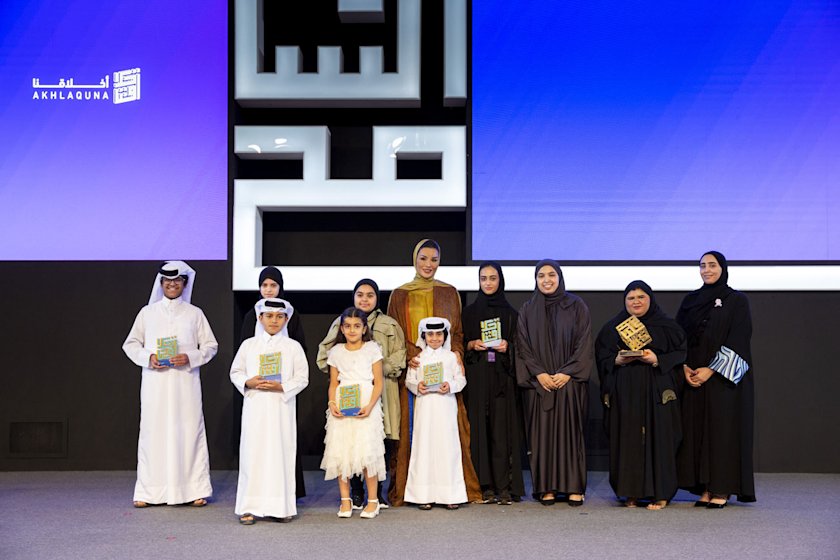
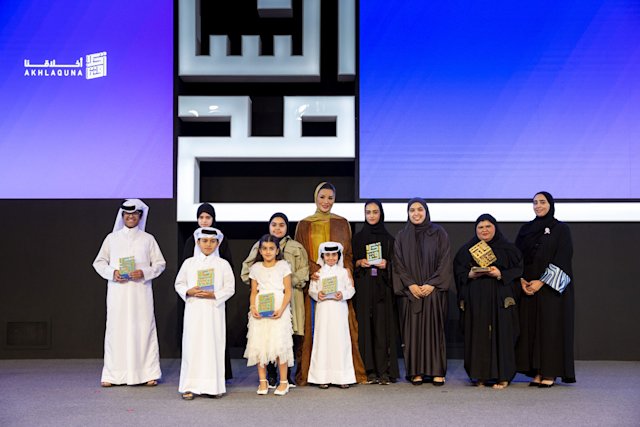
A Starring Role
Also experiencing the winning feeling was Riadh Abdelhedi – the Tunisian inventor who claimed the title of top Arab innovator by triumphing in Season 13 of QF’s innovation TV show, Stars of Science.
Abdelhedi’s Hybrid Power Bank invention provides a new and efficient way of charging a device, and it struck a chord with the public, gaining almost 40 percent of the votes to secure the Stars of Science crown.
The popular show sees aspiring Arab innovators from across the Arab world work to perfect their inventions and impress expert judges across a series of elimination rounds. Having won its latest season, Abdelhedi said: “I hope that I can set a good example for how creative and innovative Arab youth can be when equipped with the adequate resources.”
Yosouf Al-Salehi, Executive Director of QF’s Qatar Science & Technology Park, said Season 13 reflected how, amid COVID-19, global priorities have shifted. “In this very special season of Stars of Science, we have observed two broad categories of innovation – projects which are actively fighting COVID-19 and its associated complications, and projects that demonstrate resilience and adaptability and urge continuity,” he said.
Also experiencing the winning feeling was Riadh Abdelhedi – the Tunisian inventor who claimed the title of top Arab innovator by triumphing in Season 13 of QF’s innovation TV show, Stars of Science.
Abdelhedi’s Hybrid Power Bank invention provides a new and efficient way of charging a device, and it struck a chord with the public, gaining almost 40 percent of the votes to secure the Stars of Science crown.
The popular show sees aspiring Arab innovators from across the Arab world work to perfect their inventions and impress expert judges across a series of elimination rounds. Having won its latest season, Abdelhedi said: “I hope that I can set a good example for how creative and innovative Arab youth can be when equipped with the adequate resources.”
Yosouf Al-Salehi, Executive Director of QF’s Qatar Science & Technology Park, said Season 13 reflected how, amid COVID-19, global priorities have shifted. “In this very special season of Stars of Science, we have observed two broad categories of innovation – projects which are actively fighting COVID-19 and its associated complications, and projects that demonstrate resilience and adaptability and urge continuity,” he said.
I hope that I can set a good example for how creative and innovative Arab youth can be


The @StarsofScience came to meet me in Lausanne recently. Meeting innovators like them inspires me.
— Bertrand PICCARD (@bertrandpiccard) October 26, 2021
It shows there are people thinking about how to build a better future.
And congratulations to Riadh Abdelhedi!#Starsofscience #نجوم_العلوم https://t.co/Lxl5FDYpDq
Learning from the Past; Shaping the Future
New insights into Arab and Middle Eastern human history were provided through research by a QF-led international team that will help to break down a barrier to developing regionally tailored precision medicine.
Spearheaded by researchers Dr. Younes Mokrab and Dr. Khalid Fakhro from QF’s Sidra Medicine in collaboration with Qatar Genome Programme – part of Qatar Foundation Research, Development, and Innovation – the team produced the first large-scale analysis of the genetics of Arab and Middle Eastern populations.
DNA from more than 6,000 people in Qatar was examined, and their genomes compared to those from other populations around the world as well as ancient DNA. The discoveries about ancestral patterns made through the study can help to explain local human traits and disease risks, and consequently support the provision of genomic medicine to the people of the Middle East and the Arab world.
“We are discovering every day that modern day Qatar is an excellent proxy for the diverse Arab world, and future discoveries from this population will have tremendous implications for precision medicine for millions of Arabs,” said Dr. Fakhro.
New insights into Arab and Middle Eastern human history were provided through research by a QF-led international team that will help to break down a barrier to developing regionally tailored precision medicine.
Spearheaded by researchers Dr. Younes Mokrab and Dr. Khalid Fakhro from QF’s Sidra Medicine in collaboration with Qatar Genome Programme – part of Qatar Foundation Research, Development, and Innovation – the team produced the first large-scale analysis of the genetics of Arab and Middle Eastern populations.
DNA from more than 6,000 people in Qatar was examined, and their genomes compared to those from other populations around the world as well as ancient DNA. The discoveries about ancestral patterns made through the study can help to explain local human traits and disease risks, and consequently support the provision of genomic medicine to the people of the Middle East and the Arab world.
“We are discovering every day that modern day Qatar is an excellent proxy for the diverse Arab world, and future discoveries from this population will have tremendous implications for precision medicine for millions of Arabs,” said Dr. Fakhro.
More than 6,000 DNA samples from Qatar were analyzed for the study
Future discoveries from this population will have tremendous implications for precision medicine for millions of Arabs
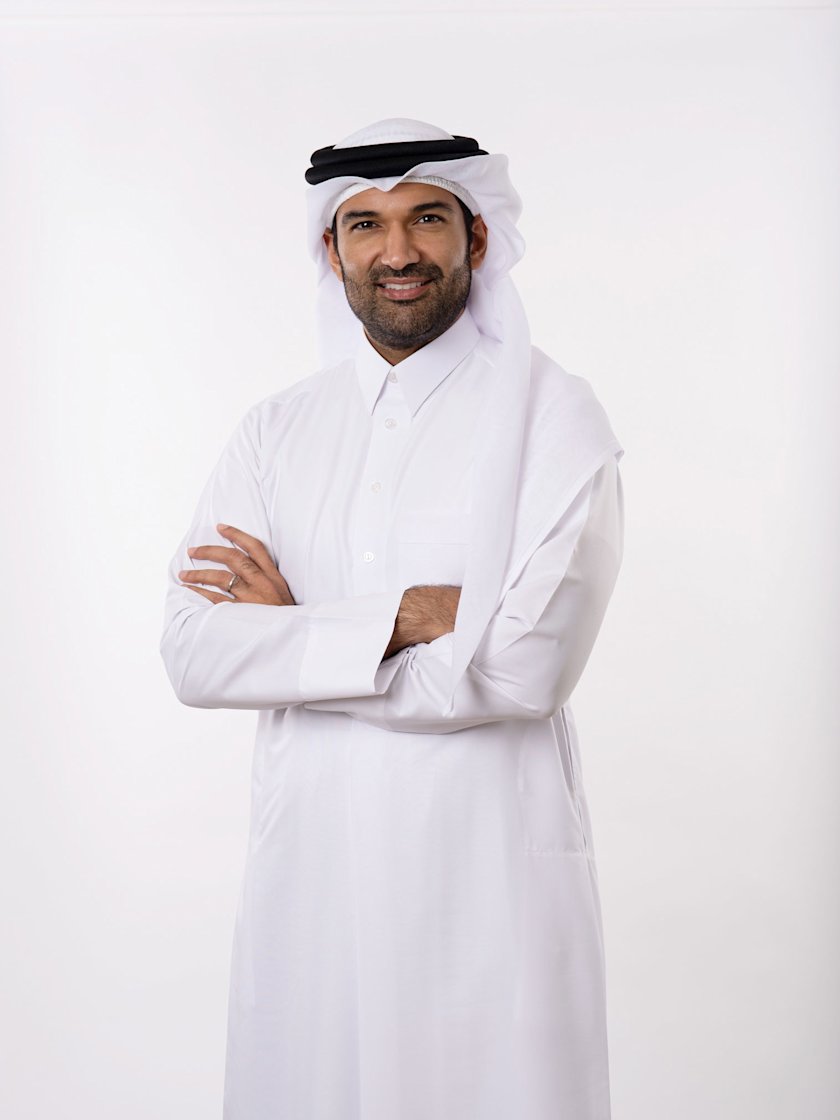
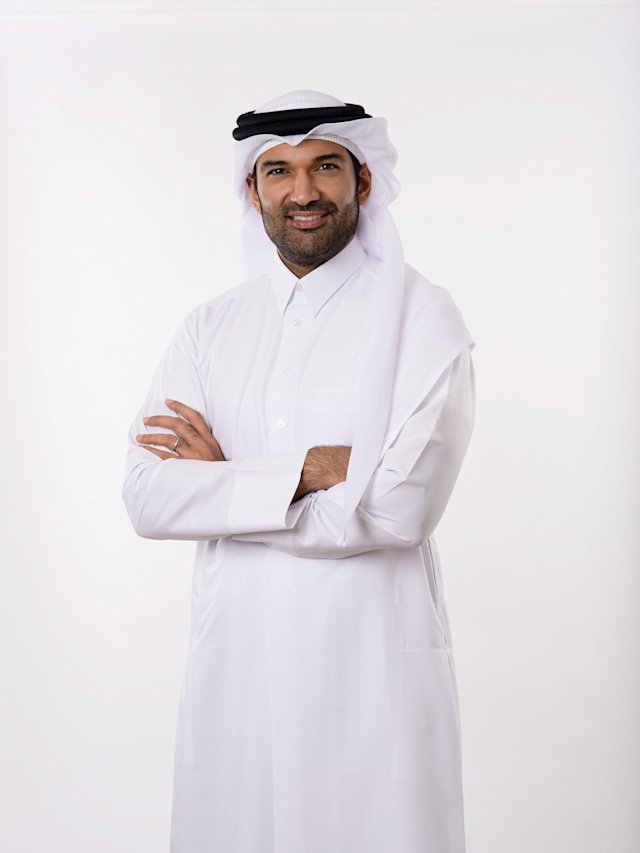
Taking Sustainability into the Community
Sustainability is for everyone – that was the message sent out to the community of Qatar by QF experts and activists as Qatar Sustainability Week 2021 unfolded in the heart of Doha.
Spanning 300 events, the initiative – run by QF’s Qatar Green Building Council (QGBC) – aims to encourage people to live more sustainable lives and raise awareness of the impact of climate change. 2021 marked its sixth year, with activities in Msheireb Downtown Doha focusing on topics ranging from eco-hospitality and climate adaptation to regenerative development and adopting sustainable behaviors.
“If you have a very sustainable building or a very sustainable city, without having the right behaviors from the users and consumers,” said QGBC Executive Director Engineer Meshal Al Shamari at Qatar Sustainability Week 2021, “you will achieve nothing.”
During the Project Qatar 2021 business exhibition in October, QGBC also launched a booklet, ‘Green Homes – Guide to Greener and Healthier Homes’, targeted at engineers, architects, construction professionals, and even homeowners and providing strategies and advice on how to make buildings environmentally friendly.
Sustainability is for everyone – that was the message sent out to the community of Qatar by QF experts and activists as Qatar Sustainability Week 2021 unfolded in the heart of Doha.
Spanning 300 events, the initiative – run by QF’s Qatar Green Building Council (QGBC) – aims to encourage people to live more sustainable lives and raise awareness of the impact of climate change. 2021 marked its sixth year, with activities in Msheireb Downtown Doha focusing on topics ranging from eco-hospitality and climate adaptation to regenerative development and adopting sustainable behaviors.
“If you have a very sustainable building or a very sustainable city, without having the right behaviors from the users and consumers,” said QGBC Executive Director Engineer Meshal Al Shamari at Qatar Sustainability Week 2021, “you will achieve nothing.”
During the Project Qatar 2021 business exhibition in October, QGBC also launched a booklet, ‘Green Homes – Guide to Greener and Healthier Homes’, targeted at engineers, architects, construction professionals, and even homeowners and providing strategies and advice on how to make buildings environmentally friendly.
300 events were held during Qatar Sustainability Week
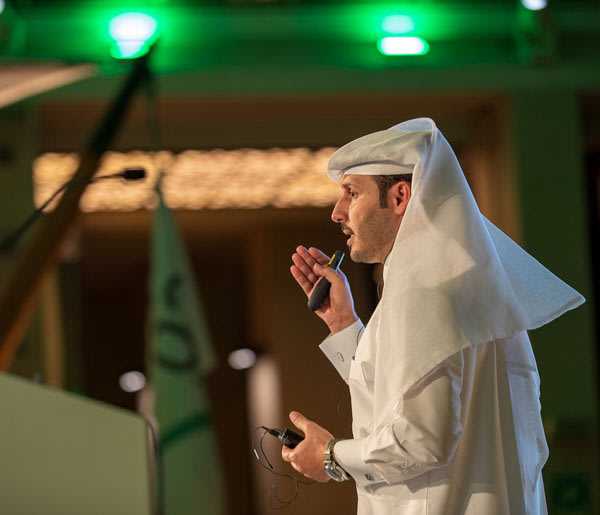

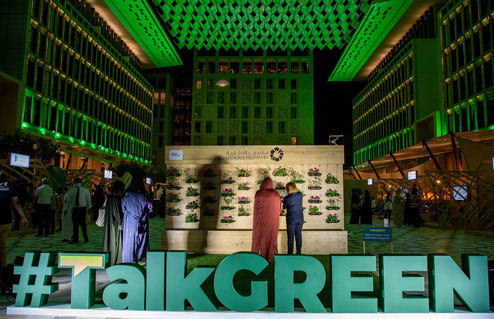

Achievements and Awareness
A new wave of childcare experts steeped in Qatari traditions and Islamic values marked their graduation in October, having been equipped by QF’s Qatar Nanny Training Academy to support families in Qatar.
The 28 students completed an intensive childcare program that included a focus on nurturing the physical and mental wellbeing of children, and represent the eighth batch of nannies to graduate from the academy.
There was also an achievement to celebrate for a student reporting team from QF partner university Northwestern University in Qatar who were selected for the 2021 Pulitzer Center Reporting Fellowships, awarded for projects that focus on globally important topics that have been under-reported in mainstream media.
Their project is exploring Pakistan’s ‘informal’ waste disposal industry and its associated health risks and social marginalization. “Journalism has taught me that if I feel strongly about something, see something wrong happening, or if I’m disturbed by something wrong around me, I can make people aware of it and do something about it, and that is what I’m doing through this project,” said team member Abid Kitchlew.
A new wave of childcare experts steeped in Qatari traditions and Islamic values marked their graduation in October, having been equipped by QF’s Qatar Nanny Training Academy to support families in Qatar.
The 28 students completed an intensive childcare program that included a focus on nurturing the physical and mental wellbeing of children, and represent the eighth batch of nannies to graduate from the academy.
There was also an achievement to celebrate for a student reporting team from QF partner university Northwestern University in Qatar who were selected for the 2021 Pulitzer Center Reporting Fellowships, awarded for projects that focus on globally important topics that have been under-reported in mainstream media.
Their project is exploring Pakistan’s ‘informal’ waste disposal industry and its associated health risks and social marginalization. “Journalism has taught me that if I feel strongly about something, see something wrong happening, or if I’m disturbed by something wrong around me, I can make people aware of it and do something about it, and that is what I’m doing through this project,” said team member Abid Kitchlew.
28 students graduated from Qatar Nanny Training Academy in 2021
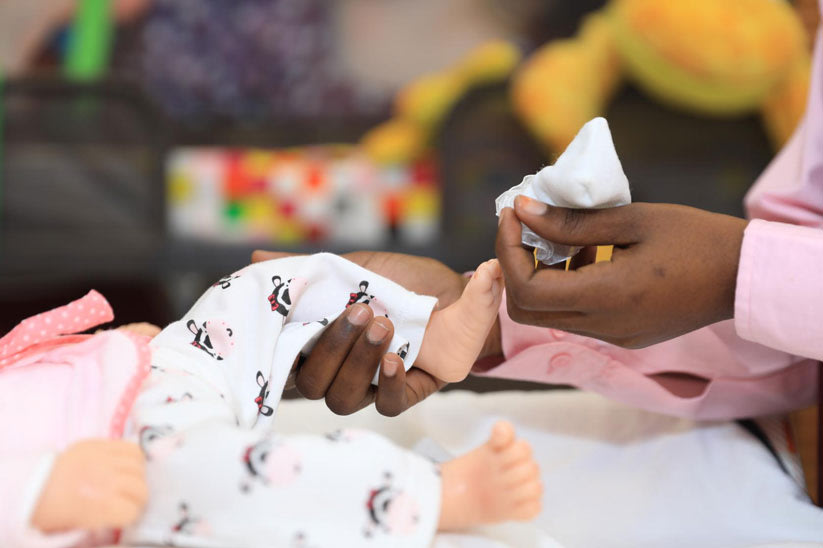
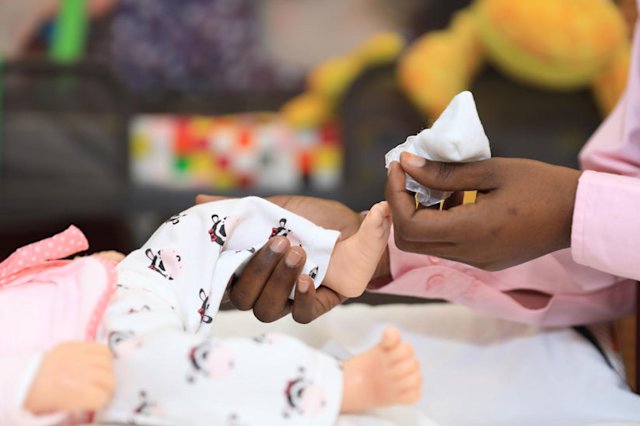
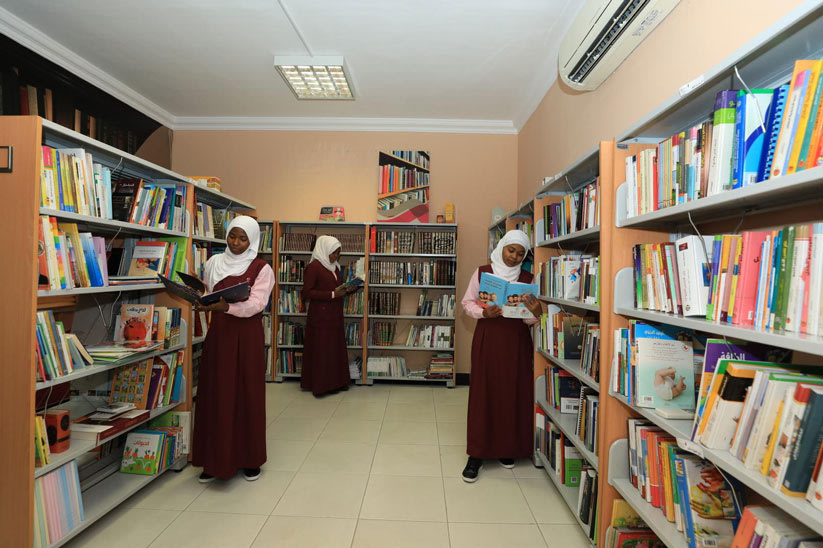
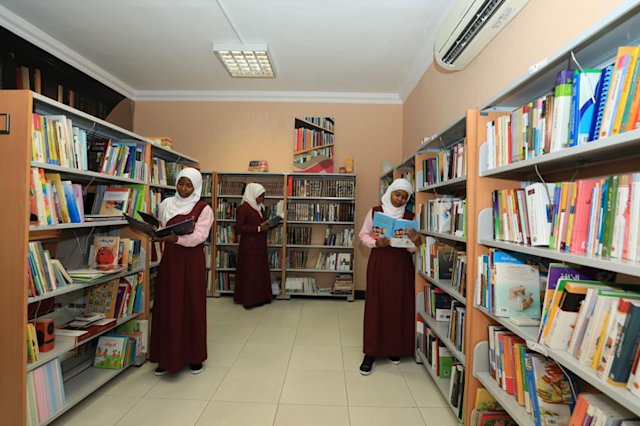
Building a Healthier Nation
Over the past decade, QF partner university Weill Cornell Medicine-Qatar’s (WCM-Q) Institute for Population Health has led research, public health initiatives, and educational programs – and empowered people in Qatar with the skills and knowledge to lead happy and healthy lives.
Its achievements were praised by Qatar health chiefs in October as the institute marked 10 years of supporting programs that tackle diseases such as type 2 diabetes, heart disease, and obesity, and emerging dangers like COVID-19, through its research work and evidence-based initiatives that promote healthy lifestyle habits.
“I have closely followed your progress and achievements over the last decade, and have been impressed by your commitment and devotion to promoting population health in Qatar,” said Sheikh Dr. Mohammed Bin Hamad Al-Thani, Director of the Public Health Department at the Ministry of Public Health, at a 10th anniversary ceremony. “Initiatives tailored to the needs of our community have yielded tremendously positive results.”
Meanwhile, WCM-Q partnered with fellow QF partner university HEC Paris in Qatar to launch a new executive education program for health leaders and decision-makers, focusing on healthcare management and policy.
Over the past decade, QF partner university Weill Cornell Medicine-Qatar’s (WCM-Q) Institute for Population Health has led research, public health initiatives, and educational programs – and empowered people in Qatar with the skills and knowledge to lead happy and healthy lives.
Its achievements were praised by Qatar health chiefs in October as the institute marked 10 years of supporting programs that tackle diseases such as type 2 diabetes, heart disease, and obesity, and emerging dangers like COVID-19, through its research work and evidence-based initiatives that promote healthy lifestyle habits.
“I have closely followed your progress and achievements over the last decade, and have been impressed by your commitment and devotion to promoting population health in Qatar,” said Sheikh Dr. Mohammed Bin Hamad Al-Thani, Director of the Public Health Department at the Ministry of Public Health, at a 10th anniversary ceremony. “Initiatives tailored to the needs of our community have yielded tremendously positive results.”
Meanwhile, WCM-Q partnered with fellow QF partner university HEC Paris in Qatar to launch a new executive education program for health leaders and decision-makers, focusing on healthcare management and policy.
Initiatives tailored to the needs of our community have yielded tremendously positive results
WCM-Q’s Institute of Public Health has:
- Published 61 articles in scientific journals on public health topics
- Trained 354 medical interpreters through its Center for Cultural Competence in Health Care
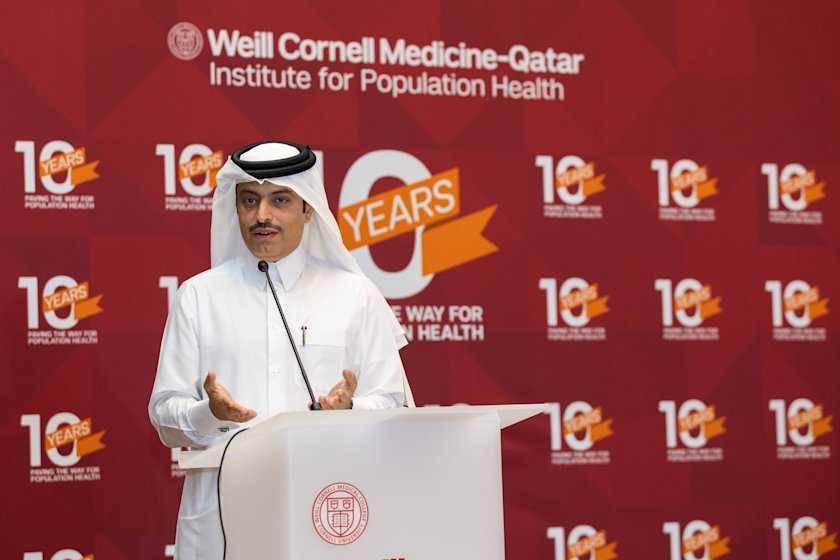
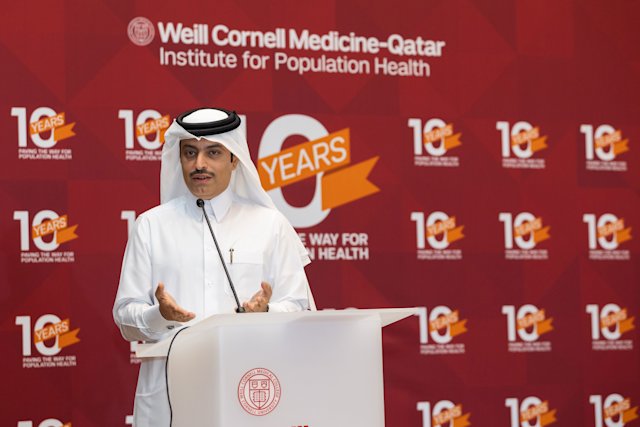
A Sporting Chance for Students of Change
With football fever already gripping Qatar more than a year away from the start of the FIFA World Cup Qatar 2022™, QF and Wanda Group – the Chinese conglomerate and FIFA Partner – teamed up to offer young Students of Change an unforgettable opportunity.
A collaboration intended to inspire a young generation of fans at upcoming FIFA events – including the Middle East’s first World Cup – enabled students from QF’s schools and universities, and young members of its community sport programs, to become part of Wanda’s FIFA Flag Bearer Programme.
By explaining how they are a Student of Change – dedicated to making a positive impact on themselves, the communities and the world – 170 young people from the QF community won the chance to be Wanda FIFA Flag Bearers for the FIFA Arab Cup Qatar 2021™, and more will taste the same experience at the FIFA World Cup Qatar 2022™.
As Machaille Hassan Al-Naimi, President of Community Development, QF, explained: “This opportunity reflects how committing to be a Student of Change with QF opens up incredible experiences that stretch beyond our classrooms, lecture halls, and community programs.”
With football fever already gripping Qatar more than a year away from the start of the FIFA World Cup Qatar 2022™, QF and Wanda Group – the Chinese conglomerate and FIFA Partner – teamed up to offer young Students of Change an unforgettable opportunity.
A collaboration intended to inspire a young generation of fans at upcoming FIFA events – including the Middle East’s first World Cup – enabled students from QF’s schools and universities, and young members of its community sport programs, to become part of Wanda’s FIFA Flag Bearer Programme.
By explaining how they are a Student of Change – dedicated to making a positive impact on themselves, the communities and the world – 170 young people from the QF community won the chance to be Wanda FIFA Flag Bearers for the FIFA Arab Cup Qatar 2021™, and more will taste the same experience at the FIFA World Cup Qatar 2022™.
As Machaille Hassan Al-Naimi, President of Community Development, QF, explained: “This opportunity reflects how committing to be a Student of Change with QF opens up incredible experiences that stretch beyond our classrooms, lecture halls, and community programs.”
This opportunity reflects how committing to be a Student of Change with QF opens up incredible experiences
